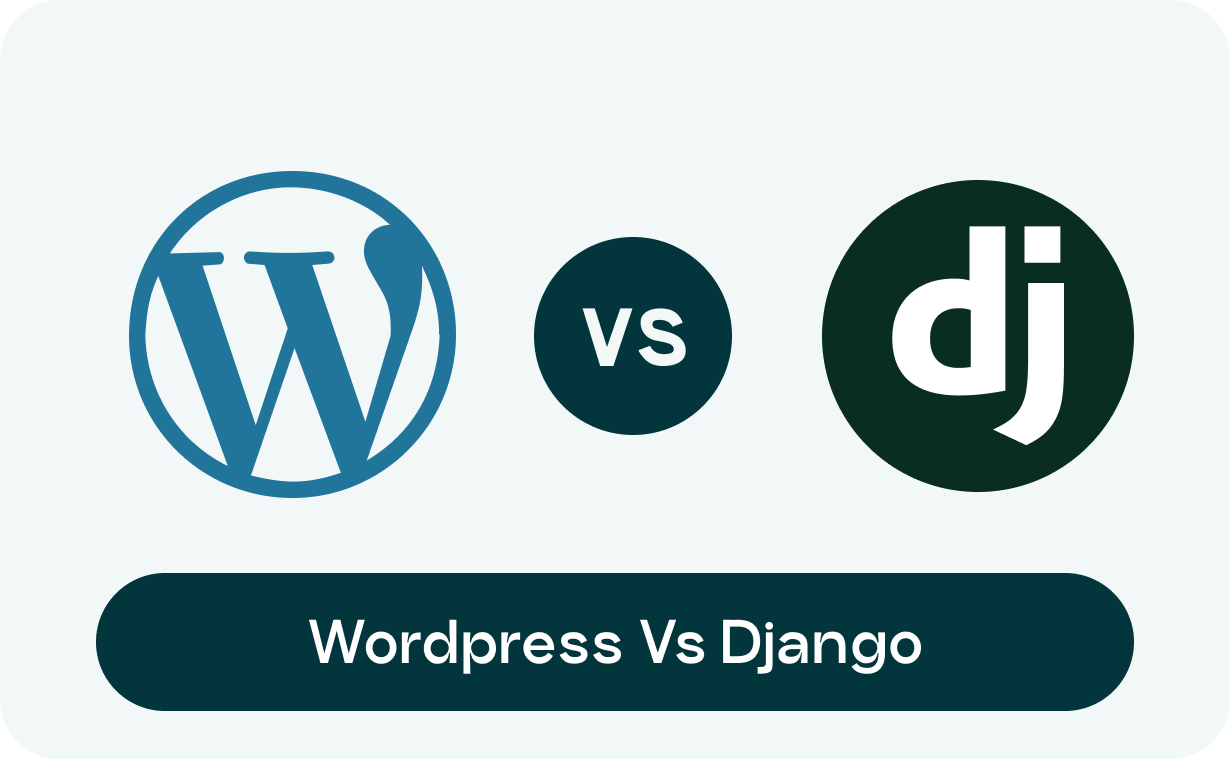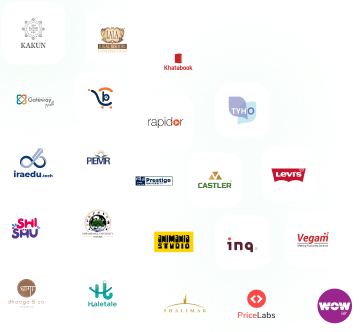When it comes to web development, WordPress vs Django are two highly popular platforms, but they cater to different needs. WordPress is primarily a content management system (CMS) that simplifies website creation, while Django is a robust, high-level web framework built on Python. This guide will compare WordPress and Django across various parameters to help you decide which one is right for your project.
What is WordPress?
WordPress is a free, open-source content management system (CMS) that powers over 40% of the web. It’s designed to make website creation and management as easy as possible. With a wide range of themes and plugins, WordPress allows users to build websites without needing to write code, making it accessible for beginners and non-developers.
Key Features of WordPress:
User-Friendly: Non-developers can easily create and manage websites.
Themes and Plugins: Thousands of pre-built themes and plugins to extend functionality.
Built-in Blogging and CMS: Ideal for content-driven websites like blogs or portfolios.
SEO-Friendly: In-built SEO features with plugins like Yoast SEO.
Huge Community: Extensive support with forums, tutorials, and documentation.
What is Django?
Django is a high-level Python web framework that encourages rapid development and clean, pragmatic design. Django is designed for developers who want to create robust, scalable, and secure web applications. Unlike WordPress, which is a CMS, Django is a framework that requires you to write custom code to build your application.
Key Features of Django:
Rapid Development: Django comes with built-in tools to accelerate development.
Scalable and Secure: Ideal for building large, data-driven web applications.
Full-Stack Framework: Includes tools for both front-end and back-end development.
Database Integration: Easily integrates with databases like PostgreSQL, MySQL, and SQLite.
Security: Provides built-in features for handling common security issues.
REST Framework: Helps in building APIs for mobile and other applications.
WordPress vs Django: A Comparison
1. Ease of Use - WordPress vs Django
WordPress:
WordPress is designed to be easy for non-technical users. It features a drag-and-drop interface, pre-designed themes, and plugins that allow users to build websites without any coding. It’s perfect for users who want to create a website quickly and with minimal effort.
Django:
Django requires a solid understanding of Python and web development principles. While Django provides many built-in features, you must write custom code to build your site or application. This makes it more suitable for developers with coding knowledge who need full control over their project.
Winner: WordPress (for ease of use)
2. Customization and Flexibility - WordPress vs Django
WordPress:
WordPress offers a wide selection of themes and plugins to help you customize your website. However, you may face limitations when you need very specific functionality, as you're often constrained by what is available in the WordPress ecosystem. Customization requires some knowledge of PHP and CSS, especially if you need to develop custom plugins or themes.
Django:
Django provides full flexibility to customize every aspect of your application. Since Django is a framework, developers have complete control over the website’s functionality, allowing them to build complex, custom features. However, this flexibility comes at the cost of requiring more development time and expertise.
Winner: Django (for full flexibility)
3. Performance and Scalability - WordPress vs Django
WordPress:
WordPress websites can become slower if not optimized properly, especially as the number of plugins and the size of the website grow. However, with proper caching, a Content Delivery Network (CDN), and optimized hosting, WordPress can handle high traffic sites.
Django:
Django is designed to handle large, complex applications. Its architecture allows it to scale efficiently and perform well even with heavy traffic and large amounts of data. This makes Django ideal for large-scale, data-driven applications.
Winner: Django (for scalability and performance)
4. Development Speed - WordPress vs Django
WordPress:
WordPress offers a quick development process, especially for simpler websites like blogs or portfolios. Since it comes with pre-built themes and plugins, you can set up a website within hours or even minutes. However, for custom features, development speed may slow down as you need to rely on custom coding.
Django:
Django is built to accelerate development with built-in tools, such as an admin interface, authentication system, and database management tools. While it offers speed for complex applications, the initial development time may be longer compared to WordPress because you need to write custom code.
Winner: WordPress (for quicker development of simple sites)
5. Cost - WordPress vs Django
WordPress:
WordPress itself is free, but you will need to pay for hosting, a domain name, and possibly premium themes and plugins. For small to medium websites, WordPress can be very cost-effective. However, the cost can increase if you need custom development or premium plugins.
Django:
Django is also free and open-source, but since it’s a framework, you will need developers who can write the code. This can lead to higher development costs, particularly if you need custom features or a large-scale application. Django projects also often require more advanced hosting solutions, which can increase costs.
Winner: WordPress (for lower development costs, especially for small websites)
6. Security - WordPress vs Django
WordPress:
WordPress is a popular target for hackers due to its widespread usage. However, with regular updates, secure plugins, and good security practices, WordPress can be very secure. It’s important to keep your themes, plugins, and WordPress core updated to minimize vulnerabilities.
Django:
Django is known for its security features, which include built-in protection against common web attacks such as SQL injection, cross-site scripting (XSS), and cross-site request forgery (CSRF). Security is one of the main focuses of Django, and as long as developers follow best practices, Django applications are very secure.
Winner: Django (for built-in security features)
7. SEO (Search Engine Optimization) - WordPress vs Django
WordPress:
WordPress is SEO-friendly, with many built-in features that help optimize websites for search engines. Plugins like Yoast SEO further enhance SEO management by providing on-page optimization features such as keyword analysis, metadata optimization, and sitemap generation.
Django:
Django doesn’t have built-in SEO tools like WordPress, so you need to manually optimize your website for SEO. However, Django provides full flexibility, so developers can implement custom SEO strategies based on the project’s needs.
Winner: WordPress (for ease of SEO)
8. Community and Support - WordPress vs Django
WordPress:
WordPress has one of the largest communities in the world, with a wealth of tutorials, forums, documentation, and third-party services. It’s easy to find help for almost any issue, regardless of whether you're a beginner or an advanced user.
Django:
Django has a smaller but highly active developer community. While resources like documentation, forums, and tutorials are available, the support is more technical, requiring a deeper understanding of web development concepts.
Winner: WordPress (for a larger and more accessible community)
Feature Comparison Table : WordPress vs Django
| Feature | WordPress | Django |
|---|---|---|
| Ease of Use | Very easy for non-developers | Requires Python and web development knowledge |
| Customization | Limited to themes and plugins | Fully customizable, full control over development |
| Performance and Scalability | Moderate to high, with optimization | Highly scalable and performant, ideal for large applications |
| Development Speed | Fast for simple sites | Fast for custom development, slower for complex apps |
| Cost | Free software, low development cost | Higher development and hosting costs |
| Security | Needs regular maintenance | Built-in security features |
| SEO | Built-in SEO, with plugins | Manual SEO implementation |
| Community and Support | Large, easy to find resources | Strong developer community |
Which is Better for Your Website?
| Criteria | Best Choice |
|---|---|
| Ease of Use | WordPress |
| Customization | Django |
| Performance and Scalability | Django |
| Development Speed | WordPress (for simpler sites) |
| Cost | WordPress |
| Security | Django |
| SEO | WordPress |
| Community and Support | WordPress |
Final Verdict on WordPress vs Django
Choose WordPress if you're looking for a fast, user-friendly solution to create a website or blog with minimal coding. It’s ideal for content-driven websites and is cost-effective for small to medium-sized projects. Get in touch
Choose Django if you're developing a custom, data-driven, or large-scale web application that requires full flexibility, scalability, and advanced security features.
FAQs: WordPress vs Django
1. Can I use WordPress with Django?
Yes, you can integrate WordPress with Django by using APIs, allowing the two platforms to work together in a web application.
2. Which is better for eCommerce?
For eCommerce, WordPress with plugins like WooCommerce is generally easier and faster to set up. Django can be used for eCommerce, but it requires more development effort to create a custom solution.
3. Is Django harder to learn than WordPress?
Yes, Django requires knowledge of Python and web development, while WordPress is much easier for beginners to pick up due to its user-friendly interface and pre-built themes and plugins.
Choosing between WordPress vs Django depends on the complexity of your project, your technical expertise, and the level of customization you require.
Follow us on Facebook to know more about us.
The world’s First zero commission platform
Hire tech partners effortlessly
 If you're a non-tech founder looking for an agency or a tech founder looking for engineers.
If you're a non-tech founder looking for an agency or a tech founder looking for engineers. You can get your 5 best matches from 2800 in 5 mins, with 1000 data points tracked.
You can get your 5 best matches from 2800 in 5 mins, with 1000 data points tracked. Connect directly with no credit card needed!
Connect directly with no credit card needed!
You’re just a click away from the best talent.


